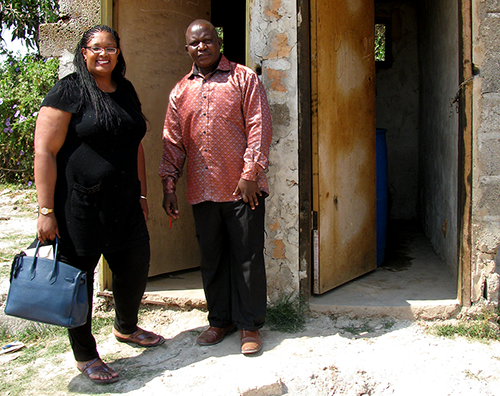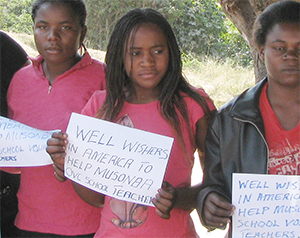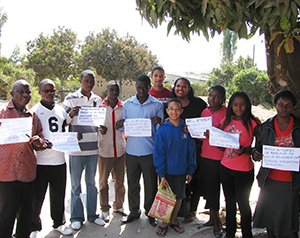The cycle of poverty in developing nations.

For Anize Appel, it’s personal.
Two years ago, Appel, a student in the Educational Leadership Management doctoral program, founded the Appel Foundation. The foundation’s mission is to improve educational-related issues of impoverished women and girls in developing countries by creating opportunities and helping to establish a sustainable future for the community.
She started the foundation because issues surrounding education in developing countries hit close to home.

Appel is married to a man from Zambia. During trips to visit his family, Appel saw the tragic impact of the HIV/AIDS epidemic sweeping the country. As a result of this and other life-threatening diseases, many children in Zambia are single or double orphans. According to the UN, orphaned children in this area are often pulled out of school or not enrolled at all due to financial constraints on the families who care for them. These children are simply focused on survival, and therefore, school takes a backseat.

Additionally, Appel’s father is from Haiti, one of the world’s poorest nations. Some Haitian girls typically get little to no schooling. As a result, they often become young mothers, and then their girls grow up without education. Poverty becomes a vicious cycle that prohibits children from learning and continues through generations.

The common theme among these countries: young girls are at a severe disadvantage.
Appel says her foundation’s goal is simple: change the system by creating more opportunities for girls to get an education.
“Let’s get these girls literate so they can make informed and thoughtful decisions for themselves on their own,” Appel says. “The cultures of misogyny and deep mindsets need to evolve too, so girls and women can express themselves and actively participate in society as equally respected members whose values and opinions matter.”

To accomplish its goal, the foundation’s work is based on four tenets: Education, Health and Nutrition, Financial Empowerment, and the Arts. In addition to Zambia and Haiti, the Appel Foundation is working to establish an after-school center in Bangalore, India. The foundation is working to build relationships in these areas in an effort to partner with local organizations, with the ultimate goal of opening schools and community centers for at-risk children and women.
Along the path to establishing the Appel Foundation internationally in areas of need, Appel has relied on things she learned in her EdD classes more than once.
“I learned a lot about my leadership style and reflected on areas of strength as well as areas in need of growth,” Appel says, “and the ability to find effective ways to create sustainable change.”
Although Appel can’t conquer the world’s issues overnight, she knows that making small steps can result in creating great strides if you touch just one life.